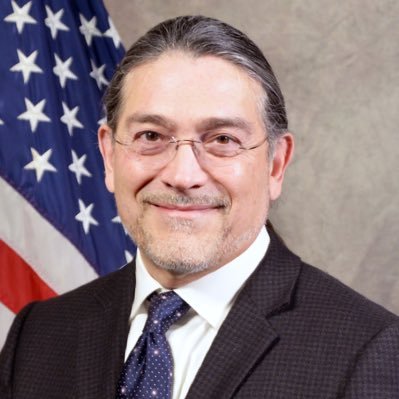The following announcement was taken from a blog by Robert Santos, director of the U.S. Census Bureau:

We at the U.S. Census Bureau build trust through our relationships. Trust is essential to effect cooperation, sharing and working together for a common good.
We at the U.S. Census Bureau build trust through our relationships. Trust is essential to effect cooperation, sharing and working together for a common good.It’s in this spirit that the Census Bureau announces an historic agreement with the Osage Nation to share information for the benefit of the Osage people. With this agreement, we now have a framework for the Osage Nation to share aggregated administrative data directly with the Census Bureau on topics like education, military service, household information, employment, health and wellness, housing, income and expenses. We are deeply honored to be able to cooperate and work together through this agreement.
We will use these aggregate data to discover new ways of improving the quality of our statistical products about the Osage Nation, while ensuring the protection and confidentiality of tribal member responses. With access to these records, we can improve our statistical products to provide a more accurate portrait of Indian Country. This is an important step in learning how our statistics can be improved with the aid of Tribal Nations.
We’re so committed to improving tribal statistics because American Indian and Alaska Native (AIAN) communities and Tribal Nations use Census Bureau statistics to understand tribes’ demographics, challenges, accomplishments and needs. Tribal statistical products are used widely for public health, economic planning and many other important purposes. Federal funding for tribal programs often relies on statistics developed by the Census Bureau for Tribal Nations. This agreement allows us to better serve the Osage Nation by creating more accurate and relevant statistical data products for their use in governance, resource management and planning.
Expanding the data sources we use is just one way we’re innovating to improve our coverage and quality. We’re researching how administrative data can be used to fill in data gaps, especially among historically undercounted populations. Gaining access to the Osage Nation’s data will help us explore new ways to boost data quality, reduce respondent burden, streamline our operations and save taxpayer dollars.
This agreement marks a significant milestone of collaboration and trust between the Census Bureau and Tribal Nations. Our efforts to build nation-to-nation relationships with Tribal Nations have spanned decades. We are proud of the progress we have made, while recognizing that we can benefit from more and stronger ties.
I’ve frequently met with tribal leaders since taking office. I always communicate that our work with Tribal Nations and the people of Indian Country is of the highest priority. Since 2022 we have made great strides in strengthening our nation-to-nation relationships – including the establishment of our continuous, on-the-ground Tribal Relations Program and engaging the AIAN community in designing new experimental statistical products.
I’m so pleased that our outreach and engagement efforts with Tribal Nations and the AIAN community are bearing fruit and paving the way for better data products that support partners across Indian Country. We remain deeply committed to the valuable partnerships we have built with various Tribal Nations over the years. I hope the Osage Nation agreement represents the first of many such sharing opportunities with other Tribal Nations.
As we advance the Census Bureau’s mission, we will continue our efforts to increase our engagement with Tribal Nations to better understand and mitigate unique barriers for Indian Country to access tribal data and resources. By working together, valuing diverse perspectives and committing ourselves to collaboration and excellence, we can produce more useful statistics about the AIAN population and better meet its needs.
Help us defend tribal sovereignty.
At Native News Online, our mission is rooted in telling the stories that strengthen sovereignty and uplift Indigenous voices — not just at year’s end, but every single day.
Because of your generosity last year, we were able to keep our reporters on the ground in tribal communities, at national gatherings and in the halls of Congress — covering the issues that matter most to Indian Country: sovereignty, culture, education, health and economic opportunity.
That support sustained us through a tough year in 2025. Now, as we look to the year ahead, we need your help right now to ensure warrior journalism remains strong — reporting that defends tribal sovereignty, amplifies Native truth, and holds power accountable.
 The stakes couldn't be higher. Your support keeps Native voices heard, Native stories told and Native sovereignty defended.
The stakes couldn't be higher. Your support keeps Native voices heard, Native stories told and Native sovereignty defended.
Stand with Warrior Journalism today.
Levi Rickert (Potawatomi), Editor & Publisher

